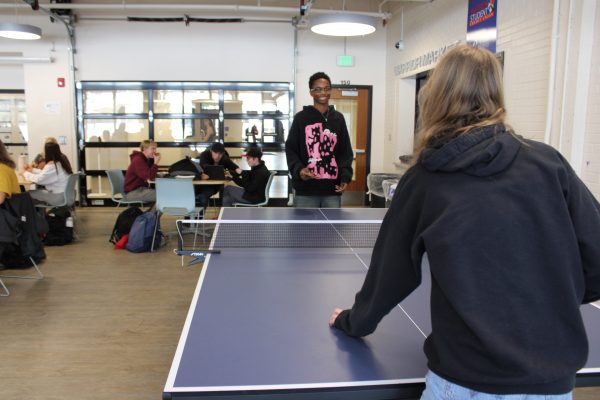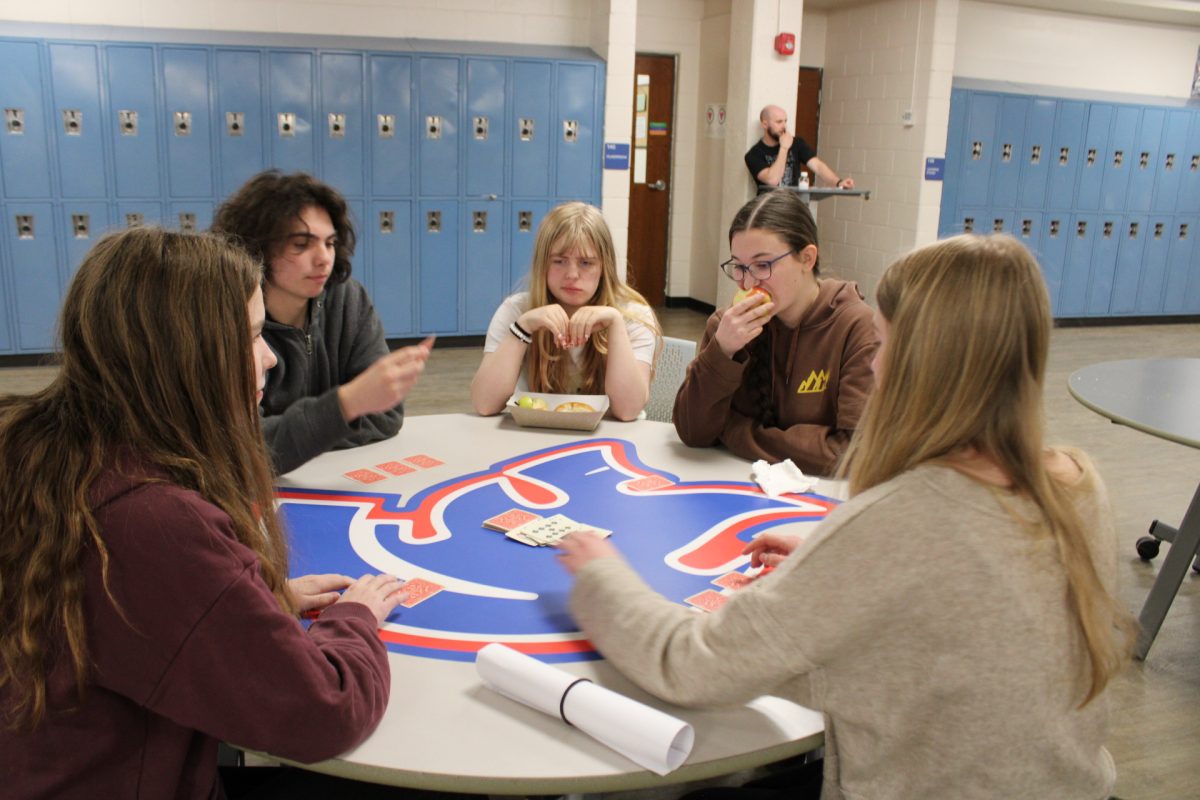Believe it or not, I don’t want my precious device taken from me. I believe I’m not alone in this, as most students I’ve talked to are pretty big fans of their cellular telephones and would like to keep them. However, BVSD sees a problem with our phone use, and in spite of pushback, has recently taken the stance that these pocket computers are not-to-be-seen anywhere on school grounds. If you’re spotted with one of these thousand-dollar fidgets, they’re gonna no-questions-asked confiscate it and make you play a long game of “Did you learn your lesson?” to get it back. Seems a bit… what’s the word? Unreasonable? Overboard? Photosynthesis? That’s not it. Regardless, the school’s attitude towards our Block Blast machines changed rapidly and significantly between semesters, and a lot of students aren’t happy.
But it’s not like that was unexpected. After all, we’re teenagers; we’re kids that are treated like adults whenever actual adults deem it convenient. Of course we’re gonna throw a hissy fit when we have to take a seven-hour break from our everything boxes. Because we don’t wanna. Though not everyone is jumping for joy that a student watching a South Park clip on TikTok makes them a juvenile delinquent, this does feel like one of those times when our opinions are easily dismissed over how few Tuesdays we’ve lived through. It feels as though the people we’re up against think we’re just following our teenage-rebellion software because the toy we’re programmed to want isn’t allowed anymore. And sure, I do like the thing. I’m not gonna pretend I have some holier-than-thou reason for wanting to have my phone out. It has games and pictures of my dogs, what’s not to love? But my qualms with the ban are much larger than that.
For starters, why is the ban even happening, anyway? If students love the only clock they can read so much, why are there people ominously walking around the school to take them away? It may have a lot to do with complaints that have existed forever, such as their role as a distraction from school work in and out of the classroom, but BVSD announcements and news indicate the main concerns are with the risks phones pose on teens’ men

tal health. Or more realistically, they’re with parents’ concerns with the media’s concerns with a book’s concerns with the risks phones pose on teens’ mental health.
See, the main reason there’s been this recent push for cellphone prohibition is Jonathan Haidt’s best-seller The Anxious Generation. In this collection of pages, Haidt concludes that social media has caused rates of anxiety, especially in teens, to increase rapidly. He proposes several solutions to this problem, including, of course, banning phones at school. Though it has been criticized plentily, with many accusing Haidt of not adequately showing causation between social media use and anxiety, The Anxious Generation used enough scary numbers and big words to instill panic. This panic inspired numerous impulsive policies to be thrown together. These policies, including the very ban I’m discussing, were put together very quickly–too quickly for enough research to be done on the best way to go about the problem of teen mental illness. They do far more to appease the public’s hasty nervousness than actually address the issue.
I’m not saying it’s unreasonable to be concerned about how phones and social media affect our developing brains. I’m not gonna pretend I always pick the right choice between finishing a short homework assignment and looking for a meme to send to friends. And I’m not gonna pretend there aren’t anxieties I wouldn’t’ve gotten if I weren’t so online. But I have a huge problem with the new policies, and I don’t think it’s (just) because I’m a hopeless phone addict. My biggest problem is that cellphone use during students’ allotted free time does not in any way fall under what’s appropriate for the district to be policing. In class, sure, I find putting my phone away annoying, but I recognize that I have a designated job in the classroom. Even if I wanna debate how to do it, it is well within the school’s authority to ensure I do that job in class, even if it’s by taking away distractions. But the same expectation should not be held when I’m chilling in the cafeteria during my lunch period. During our allotted free time, our job is to keep ourselves and each other safe and not break the law. Cellphones fall far below the bar of what’s a legitimate threat to our safety and wellbeing. It doesn’t matter if taking time off our phones is “good for us” or would make us happier, it’s simply none of the school’s business if that’s how we wanna spend our free time. We have the freedom to leave campus to get a muffin from the bakery or learn about the world of scientology, indicating a shared understanding that we have a sense of responsibility and aren’t bound by how adults think we should have fun. But the phone ban goes completely against this understanding; it doesn’t protect us or keep us safe, it imposes unsolicited ideals on how we should be.
This semester, Centaurus has introduced a number of fun activities for us to do in lieu of these wretched slabs of metal. This includes movies being shown in the fishbowl, and fun activities being held in the gym. These are wonderful additions that provide a great way to get students to try new things and meet new people, but there’s no reason this can’t be done anyway. If more of this is done in parallel with looser phone policies, which can still be strict about cellphone use in the classroom, then it will encourage students to get off their phones and spend time with others in new ways. But attempting to force students to do so, by implementing unyielding restrictions on their preferences, leads to insulted students with a more bitter attitude towards those there to keep them safe. Because the message being sent to us is a patronizing one–one that asks us to lend our executive function to adults we don’t know.






!["This is [Not] Who We Are" movie poster.](https://chswarriorscroll.com/wp-content/uploads/2025/04/Screenshot-2025-04-13-at-9.34.19 PM-1200x678.png)




